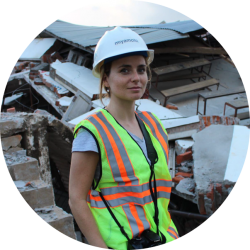Housing represents more than 60% of the building stock and the greatest potential losses during disasters.
HOUSING RESILIENCE EXPERTS
Miyamoto provides multi-disciplinary expertise in engineering, urban planning an finance to propose recommendations that support the development of affordable, resilient housing stock and policies.
Expertise
- Damage assessments and identification of at-risk buildings
- Prioritization for investment based on probabilistic analysis
- Cutting-edge construction technology
- Innovative, cost-effective retrofit technologies
- Mobile training apps for safe construction
- Inclusive financial and policy advisory services (land titling, resource allocation, taxation)
- Structural engineering
- Retrofit assessments
- Technical advice for public-private partnerships
- EDGE green certification and green design
- Resilience assessments
- Construction quality assurance

Principal
Olivia Nielsen is one of the most respected experts in affordable housing construction, finance, resiliency, and policies. From post-disaster Haiti to Papua New Guinea, she has developed critical housing programs in over 30 countries. Her expertise makes safe and affordable housing available to all.
Housing resilience takes on multiple lenses
Affordability
Homes should last multiple generations and provide reliable safety during disasters.
Durability and safety
A home is usually the most expensive purchase a family makes. To be affordable, long-term housing finance must be combined with low housing costs.
Health
Homes should not be the source of diseases through lack of water, sanitation or overcrowding. Housing quality is also key to mental health.
Sustainability
Solving the housing crisis is lined with solving the climate crisis. Homes should be built to last and enable households to reduce energy and water consumption.
Investment
Beyond a place to live, an investment in a home should appreciate over time.
Inclusiveness
Housing programs much be inclusive to all, including women and migrants.
KEY RISKS

Miyamoto's recommendations address both quantitative and qualitative challenge

Issues: Miyamoto has a series of tools to evaluate the quality of existing buildings, including:
- Structural integrity and resilence to natural hazards
- Connection to key infrastructure (water, sanitation, electricity, even WiFi)
- Overcrowding
- Lack of tenure security
Diagnostic tools: Miyamoto uses diagnostic tools to assess quanlitative housing deficit, including
- Policy, finance and engineering research, incluiding local data and international best practices
- Satellite imagery and machine learning to asses quality of housing stoc

Issues: There are major barriers towards the development of housing at scale, including
- Land titling, cost, and location
- Lack of infrastructure
- Lack of long-term financing
- Difficulty in implementing public-private partnerships (PPPs)
Diagnostic tools: Miyamoto uses diagnostic tools to assess quantitative housing deficit, including
- Housing value chain assessment, which includes an assessment of both supply (construction) and demand (financing)
- Long-term finance assessment
- Engineering and construction technology assessment

Housing + COVID-19
Miyamoto provides recommendations to support the development of affordable,
reslient housing stock and policies.
Housing Resilience Experts
Miyamoto provides recommendations to support the development of affordable,
reslient housing stock and policies.
[statictweets skin=”simplistic” resource=”usertimeline” user=”olivia_nielsen1″ list=”” query=”” id=”” count=”4″ retweets=”on” replies=”on” ajax=”off” show=”username,screenname,avatar,time,actions,media”/]
Passionate about making cities resilient, sustainable and inclusive for all!

